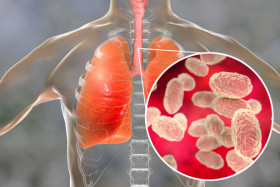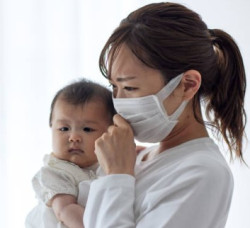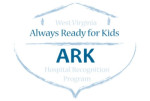What is Pertussis (Whooping Cough) and How to Protect Yourself
Tuesday, November 11, 2025
 Health officials have seen a recent rise in pertussis (whooping cough) cases in our community. Pertussis is a highly contagious respiratory infection that can affect anyone but is especially dangerous for babies and young children.
Health officials have seen a recent rise in pertussis (whooping cough) cases in our community. Pertussis is a highly contagious respiratory infection that can affect anyone but is especially dangerous for babies and young children.
The bacteria attack the airways, causing severe coughing fits that can make it hard to breathe, eat or even sleep.
Symptoms to Watch For
Early symptoms often look like a mild cold - runny nose, mild cough, low fever--but within a week or two, that cough can worsen into:
- Intense, uncontrollable coughing fits
- A “whooping” sound when breathing in after coughing
- Vomiting after coughing episodes
- Exhaustion from constant coughing
Infants may show more subtle but serious signs such as struggling to breathe or turning blue, while teens and adults may have a lingering cough often mistaken for a cold or bronchitis.
Treatment
If caught early, antibiotics can help reduce symptoms and prevent spread. Once the cough becomes severe, it can take weeks or even months to fully recover, which is why prevention is the best protection.
How to Protect Your Family
Whooping cough can be serious, especially for newborns who are too young to be vaccinated. The best way to protect them is by making sure everyone around them is up to date on their whooping cough shots. The CDC recommends:
- Children should receive the DTaP series during routine childhood immunizations.
- Teens and adults need a Tdap booster to keep their protection strong.
- Pregnant individuals are encouraged to get Tdap so their newborns – who are at the highest risk and cannot be vaccinated until 2 months of age - have early immune protection.
 When parents, siblings, grandparents and caregivers are vaccinated, they create “cocoon” of protection that keeps babies and communities healthy. If you’re feeling ill, wearing a mask can also help reduce exposure to others.
When parents, siblings, grandparents and caregivers are vaccinated, they create “cocoon” of protection that keeps babies and communities healthy. If you’re feeling ill, wearing a mask can also help reduce exposure to others.
When to Seek Care
If you or your child has non-severe but concerning symptoms, contact your pediatrician or healthcare provider to discuss testing and treatment. Even mild, lingering coughs should be evaluated, especially in teens and adults who may unknowingly spread pertussis.
For severe symptoms such as difficulty breathing, dehydration or prolonged coughing fits, visit your nearest Marshall Health Network Urgent Care/ER for prompt care.






